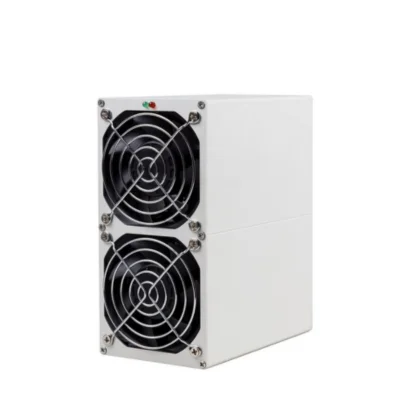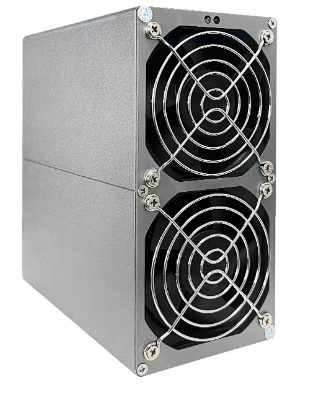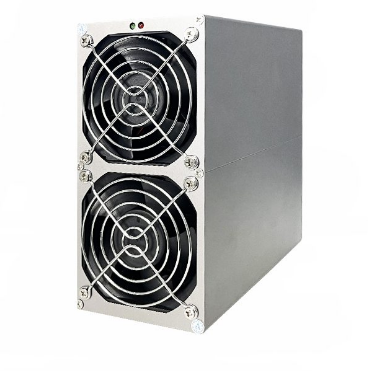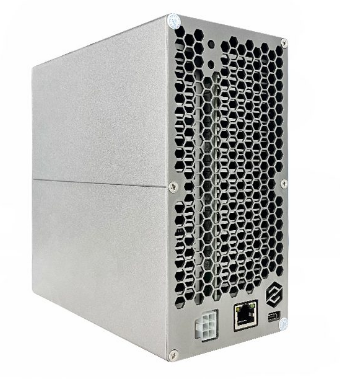iBeLink BM-K3Mini operating temperature and environment conditions
Optimizing Your iBeLink BM-K3Mini: Temperature and Environmental Best Practices for Peak Performance
Introduction
Cryptocurrency mining hardware operates best under specific environmental conditions, and the iBeLink BM-K3Mini is no exception. As a compact yet powerful Kadena miner, its performance, longevity, and efficiency depend heavily on proper temperature management and environmental setup.
Whether you’re a home miner or part of a larger operation, understanding the ideal operating conditions for the BM-K3Mini can mean the difference between maximizing profitability and facing unnecessary downtime. This guide explores:
- Optimal temperature ranges for the BM-K3Mini
- Cooling solutions to enhance efficiency
- Environmental factors affecting performance
- Best practices for long-term reliability
By the end, you’ll know exactly how to configure your mining setup for maximum uptime, efficiency, and ROI.
Understanding the BM-K3Mini’s Thermal Design
The iBeLink BM-K3Mini is engineered with an advanced dual-fan cooling system, designed to maintain safe operating temperatures even under continuous mining loads. However, like all ASIC miners, its performance is directly influenced by ambient conditions.
Key Thermal Specifications:
- Operating Temperature Range: 0°C to 40°C (32°F to 104°F)
- Cooling System: Dual high-speed fans with optimized airflow
- Noise Level: Only 35 dB, making it suitable for home use
- Power Modes:
- Standard Mode: 5 TH/s at 290W
- Eco Mode: 3.5 TH/s at 170W (better for high-temperature environments)
Why Temperature Matters in Kadena Mining
Kadena’s Blake2S algorithm is less power-intensive than Bitcoin’s SHA-256, but heat still impacts:
- Hashrate stability – Excessive heat can cause throttling.
- Hardware lifespan – Prolonged high temps degrade components faster.
- Energy efficiency – Cooling inefficiencies increase electricity costs.
Thus, keeping the BM-K3Mini within its recommended temperature range ensures consistent hashrates, lower failure rates, and better profitability.
Ideal Operating Conditions for the BM-K3Mini
1. Temperature Control: The Sweet Spot
The BM-K3Mini performs optimally in environments between 15°C to 30°C (59°F to 86°F). While it can handle up to 40°C (104°F), running near the upper limit may:
- Reduce efficiency due to increased fan speed.
- Shorten component lifespan over time.
Solution:
- Use air conditioning or ventilation in hot climates.
- Consider eco mode (3.5 TH/s at 170W) during heatwaves to reduce thermal stress.
2. Humidity Considerations
High humidity can lead to condensation, risking electrical shorts or corrosion. The BM-K3Mini should operate in 30% to 60% relative humidity.
Solution:
- Use a dehumidifier in damp environments.
- Avoid placing miners in basements or garages prone to moisture.
3. Airflow & Ventilation
The dual-fan system relies on unrestricted airflow to dissipate heat. Poor ventilation leads to:
- Hotspots inside the miner.
- Reduced cooling efficiency, forcing fans to work harder.
Best Practices:
- Space miners at least 6 inches apart to prevent heat buildup.
- Use external exhaust fans if mining in an enclosed space.
- Avoid dusty environments—dust clogs heatsinks and reduces cooling efficiency.
4. Power Supply Stability
Voltage fluctuations can affect both performance and heat generation. The BM-K3Mini uses a standard 12V power supply, so ensure:
- A stable power source (consider a UPS for areas with frequent outages).
- Proper electrical wiring to prevent overheating.
Cooling Solutions for Different Mining Setups
Home Mining (Low Noise, Compact Cooling)
Since the BM-K3Mini is quiet (35 dB), it’s suitable for home use. However, small spaces heat up quickly.

Recommended Setup:
- Place the miner near a window or vent for passive cooling.
- Use a small desk fan to improve airflow if needed.
- Monitor temps with remote management software.
Garage/Warehouse Mining (High-Density Cooling)
For multiple BM-K3Minis, proper industrial cooling is crucial.
Recommended Setup:
- Rack-mounted placement with exhaust ducts directing heat outside.
- HVAC systems or ventilation fans to maintain ambient temps below 30°C.
- Thermal monitoring sensors to detect overheating risks early.
Hot Climate Solutions
If outdoor temps exceed 35°C (95°F), consider:
- Switching to eco mode (lower power = less heat).
- Liquid immersion cooling (advanced setup for extreme conditions).
- Undervolting (if firmware allows) to reduce thermal output.
Long-Term Maintenance for Maximum Lifespan
To keep your BM-K3Mini running smoothly for years:

1. Regular Cleaning
- Every 3 months, clean dust from vents and fans using compressed air.
- Check for blocked airflow paths.
2. Firmware Updates
- Manufacturers often release thermal optimization updates.
- Ensure your miner runs the latest firmware for best efficiency.
3. Monitoring & Alerts
- Use mining management software (e.g., Hive OS, Awesome Miner) to track temps.
- Set automatic shutdown triggers if temps exceed 40°C.
4. Proper Storage (If Not in Use)
- Store in a dry, cool place with anti-static protection.
- Avoid extreme cold (below 0°C), which can damage electronics.
Final Thoughts: Maximizing Your BM-K3Mini’s Potential
The iBeLink BM-K3Mini is a highly efficient, portable Kadena miner, but its performance depends on proper environmental management. By maintaining:

- Stable temps (15°C–30°C ideal, max 40°C)
- Good airflow & low dust
- Proper humidity levels
- Regular maintenance
…you can extend its lifespan, reduce downtime, and maximize profits.
Whether you’re mining at home or in a large-scale operation, temperature control is key—adjust your setup accordingly, and your BM-K3Mini will reward you with consistent, high-efficiency mining.

Ready to optimize your mining rig? Start by checking your current ambient conditions and implementing these best practices today!